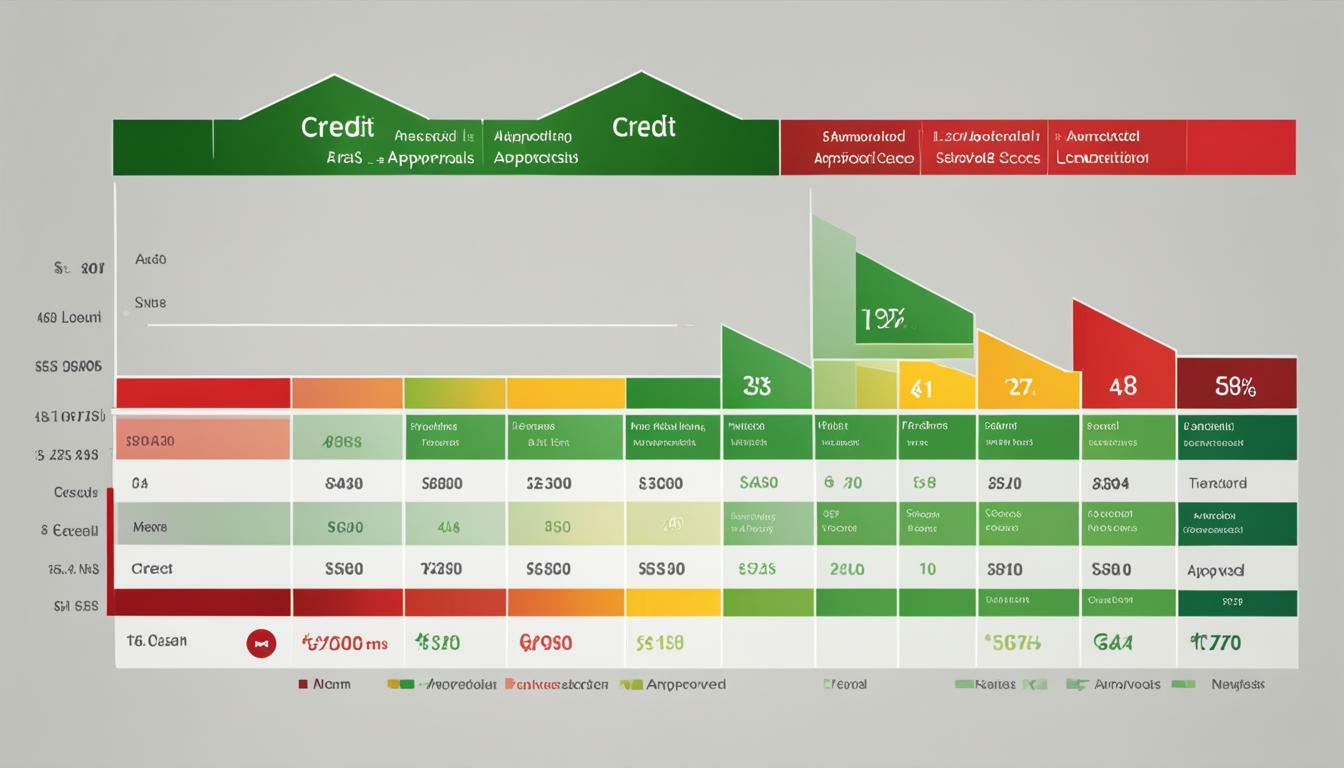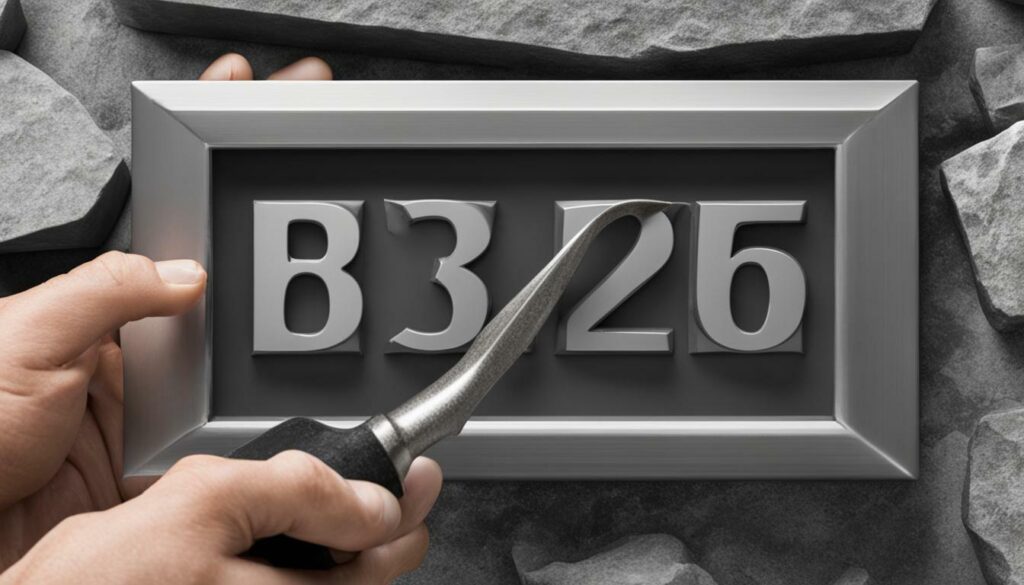Understanding Credit Scores and Their Impact on Loan Approvals

When it comes to obtaining a loan, having a good understanding of credit scores and their impact on loan approvals is essential. Lenders use credit scores to assess the risk of borrowers and determine the terms and conditions of loans. Your credit score is a numerical representation of your creditworthiness, and it plays a crucial role in determining whether you qualify for a loan and what interest rate you will be offered.
Factors that contribute to your credit score include your payment history, credit utilization (the percentage of available credit you’re using), and the timeliness of your payments. It is important to have a positive payment history, keep your credit utilization low, and make timely payments to improve your credit score.
Building and maintaining good credit is a continuous process. It involves managing your credit utilization, maintaining a mix of credit accounts, and regularly monitoring your credit report for any inaccuracies that could negatively impact your credit score.
A credit score typically ranges from 300 to 850, with higher scores indicating lower risk and better loan approval chances. It is important to strive for a good credit score, which is usually determined by lenders and falls within the range of 670 to 850.
Key Takeaways:
- Understanding credit scores is crucial for loan approvals.
- Payment history, credit utilization, and timely payments impact your credit score.
- Make timely payments, manage credit utilization, and maintain a mix of credit accounts to improve your credit score.
- Regularly monitor your credit report for accuracy and dispute any errors.
- Working with credit repair companies can be an option to improve your credit score.
Factors Affecting Credit Scores and Loan Approvals
Several key factors play a significant role in determining credit scores and ultimately impacting loan approvals. Lenders examine these factors to assess an individual’s creditworthiness and likelihood of repaying a loan. Understanding these factors can help borrowers make informed financial decisions and take proactive steps to improve their credit scores.
🚨 TUIC Errors + Low Credit Score?
CreditScoreIQ helps you build credit faster by reporting utility bills to all 3 bureaus—while you dispute errors.
Start Building Credit Today →One of the most critical factors that contribute to credit scores is payment history. Making timely payments on credit cards, loans, and other financial obligations demonstrates responsible financial behavior and positively influences creditworthiness. Late payments or defaulting on loans can have a detrimental effect on credit scores, making it more challenging to secure loans in the future.
Credit utilization is another crucial factor that lenders consider when evaluating creditworthiness. This refers to the amount of available credit that a borrower is using. It is recommended to maintain a low credit utilization ratio, ideally below 30% of the available credit limit. A high utilization ratio indicates a higher risk for lenders, which can negatively impact credit scores and loan approval chances.
Timely payments, along with managing credit utilization, are essential for maintaining and improving credit scores. It is also crucial to regularly monitor credit reports to ensure their accuracy. Mistakes or errors on credit reports can unfairly lower credit scores and hinder loan approvals. By checking credit reports regularly, individuals can identify and dispute any inaccuracies, protecting their creditworthiness and loan prospects.
| Factors Affecting Credit Scores and Loan Approvals | Summary |
|---|---|
| Payment History | Making timely payments on financial obligations positively influences creditworthiness. |
| Credit Utilization | Maintaining a low credit utilization ratio below 30% demonstrates responsible credit management. |
| Timely Payments and Credit Utilization | Managing credit responsibly by making timely payments and maintaining low credit utilization helps maintain and improve credit scores. |
| Regular Credit Report Monitoring | Checking credit reports regularly ensures accuracy and enables the identification and dispute of any errors. |
It’s important to note that credit scores range from 300 to 850, with higher scores indicating lower risk and better loan approval chances. While there is no magic number for a “good” credit score, a score above 670 is generally considered favorable by lenders. However, each lender may have their own credit score requirements, so it’s essential to research and understand the specific criteria for the loan you’re seeking.
By focusing on these key factors affecting credit scores and loan approvals, individuals can take control of their financial health and improve their chances of securing favorable loan terms. Remember to make timely payments, manage credit utilization, regularly monitor credit reports, and address any discrepancies promptly. Taking proactive steps towards building and maintaining a strong credit profile will open doors to better financial opportunities in the future.

Building and improving credit scores requires proactive steps and careful management of financial activities. A good credit score is essential for securing loans and favorable interest rates. To enhance your credit score, focus on the following strategies:
- Make timely payments: Payment history is a crucial factor in credit score calculation. Ensure that all your bills, including credit card payments, are paid on time to demonstrate responsible financial behavior.
- Maintain a mix of credit accounts: Having a diverse range of credit accounts such as credit cards, loans, and mortgages can positively impact your credit score. However, remember to use these accounts responsibly and avoid excessive debt.
- Manage credit utilization: Credit utilization ratio, which compares your credit card balances to their limits, significantly influences your credit score. Keeping credit card balances below 30% of their limits can help improve your creditworthiness.
- Regularly monitor your credit report: Check your credit report at least once a year to ensure its accuracy. Look for any errors or discrepancies that may be negatively affecting your credit score. If you find any issues, take immediate steps to dispute and rectify them.

“Understanding credit scores is crucial when it comes to loan approvals. Lenders use credit scores to evaluate the risk of borrowers and determine their terms and conditions.”
By following these steps, you can gradually improve your credit score over time. However, it’s important to remember that building good credit is a long-term process. Consistency and responsible financial management are key to achieving and maintaining a favorable credit score.
Summary:
Building and improving credit scores requires proactive steps such as making timely payments, maintaining a mix of credit accounts, managing credit utilization, and regularly monitoring the credit report. These strategies can help you enhance your creditworthiness and increase your chances of loan approval. Remember to check your credit report for accuracy and take necessary steps to rectify any errors. Working with credit repair companies can also provide assistance in improving your credit profile. Ultimately, a good credit score ranges between 670 to 850 and is crucial for favorable loan terms and conditions.
| Credit Score Range | Credit Rating |
|---|---|
| 800 – 850 | Excellent |
| 740 – 799 | Very Good |
| 670 – 739 | Good |
| 580 – 669 | Fair |
| 300 – 579 | Poor |
Credit Scores and Loan Approval Chances
Your credit score can greatly influence your chances of getting approved for a loan, and having a good credit score is crucial for favorable loan terms. Lenders use credit scores to assess your creditworthiness and determine the level of risk of lending to you. A higher credit score indicates lower risk, making you more likely to receive loan approvals.
When it comes to credit scores, there are different ranges that lenders consider. Generally, a credit score above 670 is considered good for loan approval purposes. However, it’s important to note that lenders may have their own specific criteria and scoring models. The credit score range typically goes from 300 to 850, with higher scores being more desirable for loan approvals.
On the other hand, having a bad credit score can significantly impact your loan approval chances. A lower credit score indicates a higher risk to lenders, which may result in higher interest rates, stricter terms and conditions, or even loan denial. Therefore, it’s crucial to strive for a good credit score by practicing responsible credit management.
Improving your credit score can be done through various strategies. Making timely payments on all your credit accounts, managing your credit utilization ratio, and maintaining a diverse mix of credit types are key factors that can positively impact your credit score. Regularly monitoring your credit report for accuracy is also important, as errors can potentially lower your credit score. In case you find any discrepancies, take the necessary steps to dispute them and have them corrected.
| Credit Score Range | Creditworthiness |
|---|---|
| 300-579 | Poor |
| 580-669 | Fair |
| 670-739 | Good |
| 740-799 | Very Good |
| 800-850 | Exceptional |
However, improving your credit score may take time and effort. If you need assistance or want to expedite the process, you may consider working with a reputable credit repair company. These companies offer services to help you manage and improve your credit profile, including disputing inaccuracies and negotiating with creditors.
Remember, a good credit score not only increases your chances of loan approvals, but also opens doors to better financial opportunities. By understanding credit scores and taking proactive steps to improve yours, you can position yourself for a brighter financial future.
Monitoring and Disputing Credit Report Errors
Keeping a close eye on your credit report is crucial to ensure its accuracy and identify any errors that could affect your credit scores and loan approvals. Regularly monitoring your credit report allows you to stay informed about your financial standing and take proactive steps to maintain a healthy credit profile. It is recommended to check your credit report at least once a year, and more frequently if you are actively working on improving your credit or planning to apply for a loan.
One effective way to check your credit report for accuracy is to obtain a copy from each of the three major credit bureaus – Experian, Equifax, and TransUnion. By reviewing all three reports, you can identify any discrepancies or errors that may be present. Look for inaccuracies such as incorrect personal information, accounts that do not belong to you, or late payments that you believe were made on time. If you spot any errors, it is important to take immediate action to dispute them.
To dispute any errors found on your credit report, you can follow these steps:
- 1. Gather supporting documentation: Collect any evidence that supports your claim of an error, such as payment receipts, statements, or correspondence with creditors.
- 2. Contact the credit bureau: Reach out to the credit bureau in writing and provide a clear explanation of the error. Include copies of the supporting documentation to strengthen your case.
- 3. Contact the creditor: If the error is related to a specific account, it is advisable to contact the creditor directly and inform them of the mistake. Request that they update the information with the credit bureaus.
- 4. Follow up: Keep track of your dispute process and follow up with the credit bureau and creditor to ensure that the error is resolved. Credit bureaus are generally required to investigate and respond to disputes within 30 days.
By taking these steps, you can rectify any inaccuracies on your credit report and prevent them from negatively impacting your credit scores and loan approval chances. Remember, maintaining a solid credit profile requires ongoing vigilance, so make it a habit to regularly monitor your credit reports for accuracy and dispute any errors promptly.
Image:

| Credit Score Range | Credit Score Description |
|---|---|
| 300-579 | Poor |
| 580-669 | Fair |
| 670-739 | Good |
| 740-799 | Very Good |
| 800-850 | Exceptional |
In conclusion, regularly monitoring your credit report is essential for maintaining a healthy credit profile and ensuring the accuracy of your credit scores. By checking your credit report for errors and disputing any inaccuracies, you can safeguard your creditworthiness and increase your chances of securing favorable loan approvals. Take the necessary steps to stay informed, protect your financial interests, and proactively manage your credit.
Seeking Help from Credit Repair Companies
In certain situations, seeking help from credit repair companies can be a viable option to improve your credit scores and navigate any credit-related challenges. These companies specialize in analyzing your credit history, identifying errors or discrepancies, and assisting you in resolving them. By leveraging their expertise, you can enhance your creditworthiness and increase your chances of loan approval.
Working with credit repair companies offers several benefits. They have a deep understanding of the credit system and can guide you on the most effective strategies to improve your credit score. These strategies may include negotiating with creditors to remove negative marks, helping you establish positive payment histories, and providing personalized advice on managing your credit accounts.
Additionally, credit repair companies can handle the time-consuming process of disputing inaccuracies on your credit report. They will communicate directly with credit bureaus, gather necessary documentation, and follow up on your behalf. This not only saves you valuable time but also ensures that any errors affecting your credit score are promptly corrected.
Choosing the Right Credit Repair Company
When considering working with a credit repair company, it is crucial to conduct thorough research and choose a reputable and trustworthy provider. Look for companies that are licensed, bonded, and have a proven track record of success. Reading customer reviews and testimonials can also provide valuable insights into their effectiveness and customer satisfaction rates.
Remember that credit repair companies cannot guarantee a specific outcome, and their services may come with fees. Be cautious of any company that promises immediate results or asks for upfront payments before they have started working on your case. Transparency and clear communication are essential in establishing a successful partnership with a credit repair company.
By investing time and effort into repairing your credit with the help of professionals, you can improve your credit scores and open doors to better loan approval chances. Take control of your financial future by considering the option of working with a credit repair company to achieve your credit goals.
Conclusion
Understanding credit scores and their impact on loan approvals is essential for making informed financial decisions and securing favorable loan terms. Lenders rely on credit scores to assess the risk associated with borrowers and determine the terms and conditions of their loans. By considering factors such as payment history, credit utilization, and timely payments, individuals can work towards improving their credit scores and increasing their chances of obtaining loan approvals.
To improve credit scores, it is crucial to make timely payments on all credit accounts and manage credit utilization effectively. By maintaining a mix of credit accounts, individuals can demonstrate their ability to handle various types of credit responsibly. Additionally, regularly monitoring the credit report allows individuals to identify any errors or discrepancies that may negatively impact their credit scores. Taking proactive steps to dispute and resolve such errors is important for maintaining an accurate credit profile.
Credit scores range from 300 to 850, with higher scores indicating lower risk and better loan approval chances. While the specific threshold for a good credit score may vary among lenders, generally, a score between 670 and 850 is considered favorable. However, it is important to note that lenders have their own criteria for evaluating creditworthiness, and credit scores are just one aspect of the loan application process.
In some cases, individuals may choose to work with credit repair companies to improve their credit scores. These companies offer services to help individuals navigate the complexities of the credit system, dispute errors, and negotiate with creditors. Seeking professional assistance can be a viable option for those who require expert guidance in managing their credit profiles.
In conclusion, understanding credit scores, actively working to improve them, and maintaining a healthy credit profile are vital for securing loan approvals and favorable terms. By taking the necessary steps outlined in this article, individuals can pave the way for a more secure financial future and increase their access to credit opportunities.
FAQ
What is the impact of credit scores on loan approvals?
Credit scores play a significant role in the loan approval process. Lenders use credit scores to assess the risk of borrowers and determine their loan terms and conditions.
What factors affect credit scores and loan approvals?
Factors such as payment history, credit utilization, and timely payments contribute to an individual’s credit score and, in turn, affect their loan approval chances.
How can I build and improve my credit score?
To build and improve your credit score, it is important to make timely payments, manage credit utilization, maintain a mix of credit accounts, and regularly monitor your credit report.
What is considered a good credit score for loan approval?
A good credit score for loan approval typically falls within the range of 670 to 850. Higher credit scores indicate lower risk and better chances of loan approval.
Why is it important to regularly monitor and dispute credit report errors?
Regularly monitoring your credit report helps ensure its accuracy. If you find any errors that could impact your credit score and loan approvals, it is crucial to dispute them promptly.
Should I seek help from credit repair companies?
Working with credit repair companies can be an option for improving credit scores and resolving credit-related issues. These companies provide services aimed at assisting individuals with their credit profiles.
Ready to Improve Your Credit?
Disputing TUIC errors is step one. Step two? Boost your score by reporting utility payments with CreditScoreIQ.
Get Started Now (Only $1 Trial) →3-bureau reporting • $1M identity insurance • Dark web monitoring






